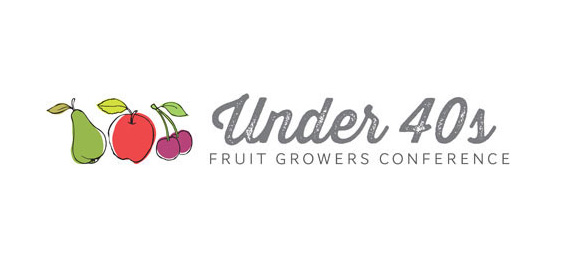Professor John Hudson was working at Long Ashton Research Station on the outskirts of Bristol when he realised the value of bringing together those who were working in the fruit industry so that they could share their knowledge and learn from each other.
He set up the Under 40s, an organisation that set out to give a voice to young people who worked in the industry but who, until that time, had not been given the opportunity to share their thoughts and experiences on growing fruit.
He launched the organisation in 1967 and chose its name specifically to target those who might be working in the shadow of their parents or employers.
“Giving a voice to younger growers was perhaps more important 50 years ago, when young people were still expected to be ‘seen and not heard’ and were generally less inclined to challenge the perceived wisdom than they are today,” said one of the group’s founder members, Malcolm Withnall.
The Under 40s quickly became not just a success but a force to be reckoned with, bringing together young growers with new ideas who were keen to learn from their peers and share their successes and failures with fellow growers.
“Professor Hudson wasn’t entirely without self-interest,” Malcolm added. “He knew that as a scientist he stood to benefit from being able to get feedback and views from right across the fruit industry.”
That feedback came mainly at a two-yearly conference organised for members of the group and held at Long Ashton, which closed as a research station in 2003.
While Long Ashton is no longer helping to provide scientific answers to the fruit industry’s questions, the Under 40s is still going strong, half a century after Professor Hudson set it up.
The new committee, which took over the reins in March 2015 is already working hard on its programme of events for the next two years and, 50 years on, is still focusing most of its efforts on the two-yearly conference, which will take place in 2017.
While details of the venue are still a tightly-guarded secret, the committee has hinted that this will be the first time the conference has been held outside Europe and will be in a climate better suited to showing off fruit trees in February, a date chosen to coincide with a traditional quiet time for growers.
“We had a great time and heard from some fantastic speakers on the trip this February, but there’s not much life to be seen on the trees in Belgium in the rain at that time of the year,” explained incoming chairman Charlie Dunn. “Our next trip will be designed to put that right.”
As well as planning the next two-yearly trip, the new committee wants to broaden the appeal of the group by introducing new events, including farm walks and get-togethers at shows such as Fruit Focus and the National Fruit Show. Other social activities are being considered and there is a lively Facebook page – something Professor Hudson could not have envisaged.
Launching the Under 40s was not a single-handed venture. Professor Hudson’s fellow founder members were Andrew Jackson, of Man of Ross in Herefordshire, Peter Vinson and Nigel Harland, all far-sighed people who understood the value of networking, although it probably wasn’t called that in 1967.
Current chairman Charlie works for the family business of Chandler & Dunn Ltd at Lower Goldstone, just outside Canterbury, a 600-hectare mixed farm that includes 200 hectares of top fruit.
He is supported by sponsorship secretary Verity Holdstock, who has recently rejoined the family business of E H Holdstock & Son and is particularly appreciative of the way her own membership of Under 40s has allowed her to learn from her peers after a spell working outside the industry.
Paul Hamlyn, farm manager with Bardsley Farms Ltd in Staplehurst, is vice chairman of the group, Chris Levett, a partner in his parents’ business at Baretilt Farm, Cranbrook is treasurer, and Estera Amesz, a director at A G Recruitment, is the secretary. Herefordshire-based agronomist Jane Cusack, who works with Agrovista, completes the team.
The Under 40s is still committed to its original ideals of promoting debate and discussion amongst young growers and giving members a unique networking opportunity and a chance to learn about innovations and study best practice.
It is also an environment in which long-term friendships can be made in an industry that can be pretty solitary. “There are lots of challenges in fruit growing and it can be a lonely business at times,” said Chris Levett. “Sometimes it’s good just to be able to ring another member of the group and chat about an idea or discuss a problem.”
The current generation is continuing to benefit from Professor Hudson’s inspired idea – and continues to enjoy the social side of life, too.
“Long Ashton was originally set up to study and improve the West Country cider industry, and visiting the old cider house on the campus was a major attraction of the two-yearly conference,” recalled Malcolm Withnall.
In other respects, though, things have changed. “In the early days the group wasn’t slow to show what it thought of dull speakers or those who tried to use scientific language that no-one understood,” he went on. “They didn’t hesitate to boo some of the guests off the stage, but I’m pretty certain that wouldn’t happen now.”
In Charlie’s words: “The organisation has moved on in a number of ways but it is fundamentally still here to do what Professor Hudson wanted it to do – bring young growers together to learn from each other, share ideas and help the fruit industry to grow.”
<>The committee of the under 40s fruit group greatly appreciate the support of the companies that made this coverage in South East farmer possible, as well as for their continued support of our fruit trips:
• NP Seymour Ltd
• Haynes
• Landseer
• Partners in Produce
• South East Farmer magazine




